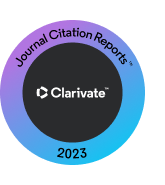SUSTAINABILITY IN INTEGRATED AGRICULTURAL SYSTEMS: APPLICATION OF THE METHOD MESMIS IN COOPERATIVE OF SMALL FARMERS
DOI:
https://doi.org/10.5327/Z2176-947820170112Keywords:
agroecosystems; hydroponic; cooperativism; indicators; semi- arid; MESMIS method.Abstract
The aim of this paper is to assess the sustainability in farming systems with integrated activities (hydroponics, desalination, microalga and aquaponics), with the activities of Hidroçu Cooperative, in São João do Cariri (state of Paraíba, Brazil) as the object of study. The application of the MESMIS Method was employed in such assessment. This research is characterized as descriptive, exploratory, with a qualitative and quantitative approach. For data collection, desk and field research were used. For analysis of the information gathered, triangulation of primary and secondary data, theoretical background and the perception of researchers were employed. The results showed that the agricultural activities of the Cooperative have average contribution to sustainability with regard to economic and social dimensions, and high environmental contribution through integrated processes, in which hydroponics allows the reduction of the impacts of agriculture on soil and preservation of natural resources. Thus, the Cooperative is seen by its associates as a promising alternative that generates jobs and income in a region characterized by long periods of droughts that prevent conventional agriculture.Downloads
Downloads
Published
2017-07-01
How to Cite
Martins, M. de F., Cândido, G. A., & Aires, A. B. (2017). SUSTAINABILITY IN INTEGRATED AGRICULTURAL SYSTEMS: APPLICATION OF THE METHOD MESMIS IN COOPERATIVE OF SMALL FARMERS. Revista Brasileira De Ciências Ambientais, (43), 64–84. https://doi.org/10.5327/Z2176-947820170112
Issue
Section
Articles
License
Copyright (c) 2017 Revista Brasileira de Ciências Ambientais

This work is licensed under a Creative Commons Attribution 4.0 International License.



























